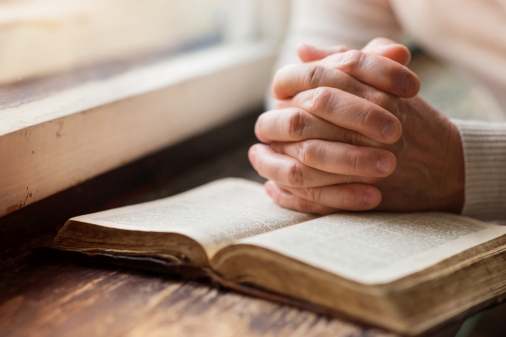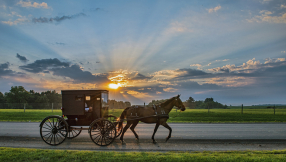
Europeans are least likely to say that religion is very important in their lives, compared to other parts of the world, and only 42 percent of Americans claim that religion is personally crucial to them.
Senior Researcher Johnathan Evans revealed the findings for Pew Research Center on Aug. 9, following the released results of an impressively long decade-and-a-half survey.
Evans said that just 10 percent or less of adults surveyed in some European countries stated the priority of religious belief, namely Estonia, the Czech Republic, Denmark, Switzerland, the United Kingdom, Sweden, Latvia and Finland.
On a more positive note, he highlighted that other parts of the world did respond more affirmingly on the importance of religion, specifically within sub-Saharan Africa and Latin America.
"People in sub-Saharan Africa are typically among the most likely to say that religion is very important in their lives," wrote Evans, "At least 90% of adults say this in Senegal, Mali, Tanzania, Guinea-Bissau, Rwanda and Zambia."
For the question of whether a respondent prayed daily — Latin Americans raised the bar with 82 percent of adults in Guatemala and Paraguay, and 78 percent in Costa Rica and Honduras.
The picture was less clear in South and Southeast Asia, compared to the polarized views in Europe and sub-Saharan Africa.
"Adults in some places in this region are among the most likely worldwide to place a great deal of importance on religion," added Evans.
"Consider Indonesia, for example, where nearly all adults say religion is very important in their lives. But far smaller shares in Singapore (36%) and Vietnam (26%) give this answer."
Pew Research Center's surveys that included the questions on religion were carried out within 102 countries. The surveys from 2008 until last year (2023) asked respondents: "How important is religion in your life?" and "How often do you pray?"
"The places that are most religious by these two measures tend to be in sub-Saharan Africa, Latin America and the Middle East-North Africa region," confirmed Evans. "The places that are least religious tend to be in Europe and East Asia."
Although the questions seemed simple enough, the extra layers of religiosity in some countries meant a different approach was needed.
Evans said the questions worked well in those places where Abrahamic religions dominated — Judaism, Christianity and Islam. This is "because prayer and formal religious organizations are central to those traditions."
"In other parts of the world, we need to ask additional questions to capture key aspects of religious or spiritual observance," noted Evans.
An example of this complexity is the Pew Research Center's 2023 survey that was conducted in East Asian societies and nearby Vietnam. Regional experts were consulted before the survey to create pertinent questions tailormade to the individual spiritual aspects of those countries.
"We also conducted qualitative research in Japan and Taiwan to ensure we were taking the right approach," wrote Evans.
"The survey found that while few East Asians consider religion very important in their lives or pray daily, many people across the region hold religious or spiritual beliefs and engage in traditional rituals. For example, many East Asians participate in rituals to honor their ancestors."









